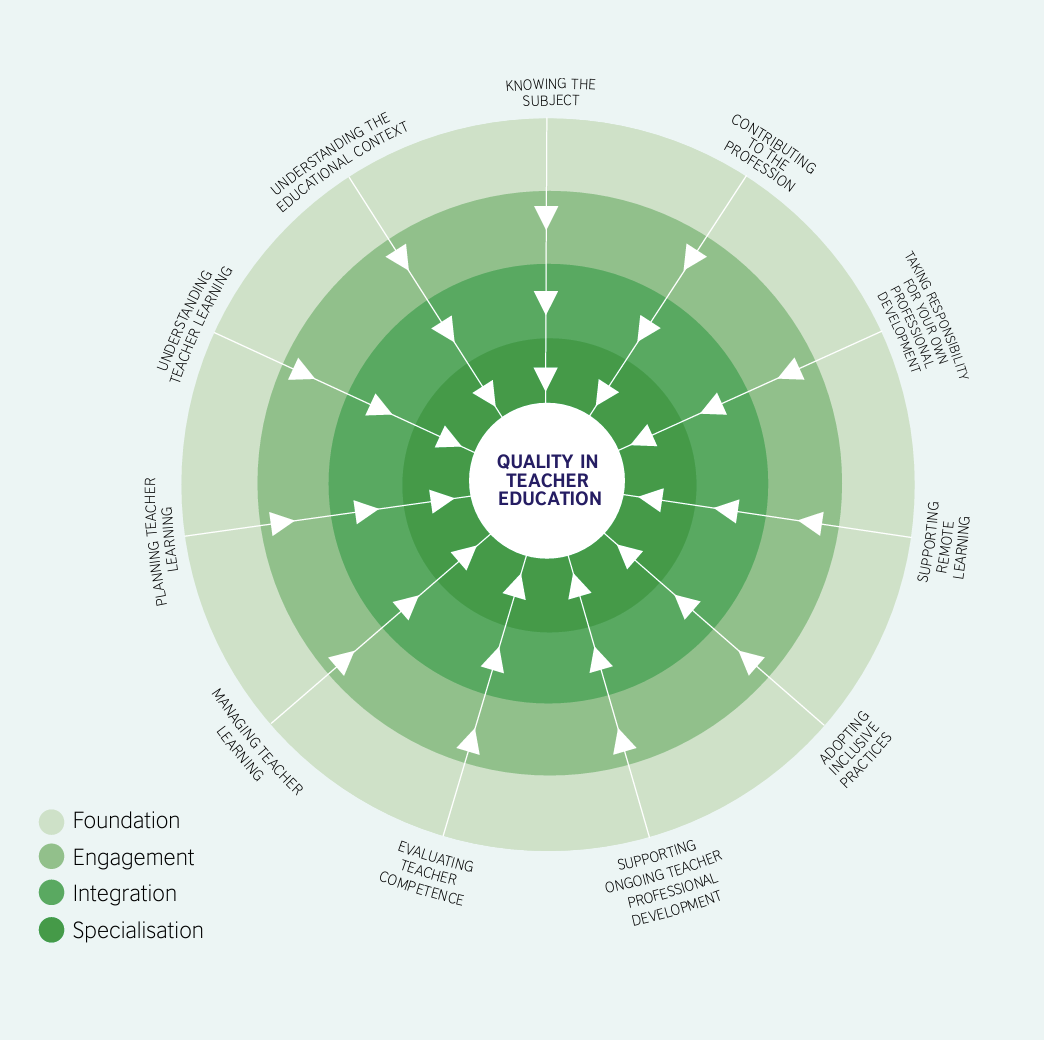
Introduction
As a teacher educator, do you feel that your developmental needs are being met? In research carried out for the British Council in 2024, we surveyed and interviewed teacher educators from around the globe to find out more about their needs, in relation to online networking. These educators identified a number of areas for development including support in creating teacher development programmes, conducting and analysing needs assessments, and motivating teachers to engage in their own professional development. Additionally, one participant highlighted that 'teacher education tends to focus on content rather than what teachers really need, which is how to interact with learners'.
Teaching is an interactive, communicative activity and just as teachers interact with their learners, they also benefit from interacting with peers in order to enhance their own practice. The same is true for teacher educators: you learn by connecting and networking with others, sharing ideas and being inspired by your peers. This networking may take place in-person, but it can also take place online.
Online spaces devoted to teacher educator development are less numerous and far less visible than online communities for teachers, which may in part be due to an assumption that teacher educators have similar needs to the teachers they work with (Hadar & Brody, 2018). A rise in social media use, boosted by many of us moving into online spaces during the Covid-19 pandemic, has seen the creation of more groups for teacher educators. However, creating an online community does not mean that it will automatically be successful. For online networking to really ‘work’, a number of factors need to be considered.
What are the features of an effective online networking space?
A key feature from our recent research is that moderated online spaces are more effective and provide a sense of professionalism. Many of the teacher educators we interviewed had been members of spaces where content posted was not relevant or helpful. We found that teacher educators appreciate online communities where moderators curate content and posts to ensure it is beneficial for members. This means, for example, that good moderators remove irrelevant or inappropriate posts, and keep things on track by providing meaningful opportunities for interaction and contribution. In short, we found that teacher educators feel that an online networking space needs to be more than 'just a repository'. Creating a space where teacher educators can interact with the content, and with each other, encourages a more dynamic and longer-lasting community, particularly when the content is carefully selected to meet the needs of its members.
When analysing existing online spaces for teacher educators, we found that there is most interaction around posts where members ask for advice. Our teacher educator survey respondents too, felt that belonging to an online network would help them to get support and advice from other experienced educators.
However, research suggests that within an online community, there will only be a small percentage of visibly active participants, with less active members sometimes referred to as ‘lurkers’. This is not to say that members are not engaging with the content in their own way, because ‘lurking’ often involves listening to others. Lave and Wenger (1991) identified this behaviour in their early research into online communities of practice, and called it ‘legitimate peripheral participation’. Indeed, it is often suggested that in online communities, 90 per cent of members lurk, while only nine per cent of members sometimes comment and react to content, and only one per cent will frequently post, comment and interact. This is sometimes referred to as the ‘90-9-1 rule’ (Neilsen, 2006), and it is useful to keep in mind to temper our expectations around interaction in online networks.
How can I get the most out of an online networking space?
Joining an online network for teacher educators can give you much-needed support, as well as the opportunity to share ideas and experiences. You may experience some reticence to actively participate in the network when you first join though. This is fine, but once you feel comfortable, you are likely to get more out of belonging to the network by interacting with others. Reading the content in online spaces enables you to reflect on your practice; however, by engaging visibly, for example by reacting to a post or adding a comment, you will find it easier to build connections with the members of the online community. This can help you to connect with like-minded professionals, who perhaps are working in a similar context to you. Being a teacher educator means belonging to a sharing profession and you will often find active members of online communities are eager to develop relationships to share their knowledge and expertise.
You could also offer to take a more active role within the networking space yourself. Taking on a moderation role can help you to give something back to the community and also help you to develop new skills, such as facilitating communication in a global network, building cultural awareness and promoting appropriate use of language and register in written communication.
Additionally, while online networking spaces encourage asynchronous interaction, there are also opportunities for teacher educators to interact in real time through webinars, for example. Attending these events will help you to engage with the content more actively, and you may also be interested in facilitating or leading a webinar to share your own experiences and insights as a teacher educator. Many of the teacher educators we interviewed in our research were keen to share their expertise in a variety of areas, including, for example, using drama in teacher training, developing blended learning courses in teacher education, and fostering effective communication between colleagues. There are so many important themes, ideas and practice to share amongst teacher educators.
Online networks are also places where professional development opportunities are shared, such as upcoming courses which may interest members, or calls for conference presentations or journal submissions. While you may not be interested in submitting a conference proposal, these posts can also help to keep you up to date with current trends in teacher education around the world.
Being a part of a global community of teacher educators enables you to gain insight into different contexts and to experience broader perspectives. Although content posted may not be immediately relevant to your context, as one teacher educator we interviewed put it: 'Every country has its own challenges, but there will be crossover'. Just as you encourage teachers to select, adapt and supplement resources, so should you also identify which content is useful for your own context.
What online resources can support my professional development?
The British Council has a wide range of free online resources for teacher educators that can be accessed and explored via the teacher educator landing page of the TeachingEnglish website. Here are a couple of resources to get you started:
- The British Council’s self-study Helping Teachers to Learn MOOC, divided into three modules, focusses on how to support teachers in their professional development by planning and delivering effective training, how to set up and facilitate communities of practice and how to encourage all types of self-directed learning.
- The self-directed Pathway Builder programme is based on the British Council’s CPD Framework for Teacher Educators, which divides the skills, understanding and approaches to professional development that teacher educators can acquire into 11 professional practices. Pathway Builder starts with a self-assessment of your current strengths as a teacher educator and helps you identify areas for development within the eleven professional practices described in the CPD Framework:

After completing the self-assessment, you are guided through a range of high-quality resources which have been curated and compiled into an easy-to-access list. Recent Pathway Builder participants have praised the variety and quality of the resources, which include webinars, articles and journals. There are also case studies from teachers and teacher educators working in a variety of contexts; these can help you broaden your perspectives on teacher education from around the globe.
The British Council also runs an annual webinar series directed at teacher educators. Sessions in the 2023-24 programme included planning effective CPD programmes for teachers, helping teachers develop their digital literacy skills and reviewing approaches to classroom observation. See the teacher educator webinar page of the TeachingEnglish website for forthcoming webinars.
Summary
As a teacher educator, you probably enjoy and engage with professional development resources aimed at teachers so you can pass on new ideas to the teachers you work with; however, you also have needs and it is important to take time to support your own professional development. Here’s a short summary of how you can do so:
- Take a free course such as the Helping Teachers to Learn MOOC.
- Assess your own strengths and work on areas for development by following the Pathway Builder programme to become an even more effective teacher educator.
- Attend a webinar for teacher educators - and consider becoming a webinar presenter yourself.
- Become a member of one of the British Council teacher education online networks, and support and interact with peers.
- Sign up for the British Council Teacher Educator Newsletter, to keep up to date with all of the professional development opportunities on offer.
References
Hadar, L. L., & Brody, D. L. (2018). Individual growth and institutional advancement: The in-house model for teacher educators’ professional learning. Teaching and Teacher Education, 75, 105-115. https://doi.org/10.1016/j.tate.2018.06.007
Lave, J., & Wenger, E. (1991). Situated learning: Legitimate peripheral participation. Cambridge University Press. https://doi.org/10.1017/CBO9780511815355
Nielsen, J. (2006). The 90-9-1 Rule for Participation Inequality in Social Media and Online Communities. https://www.nngroup.com/articles/participation-inequality/ Retrieved 19 March 2024.